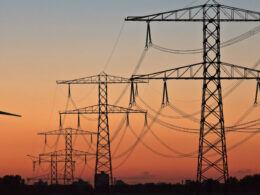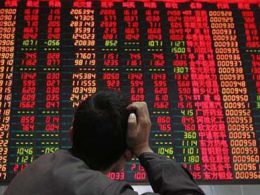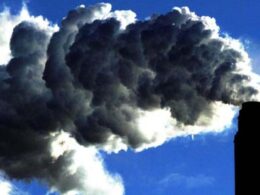By Keishia Taylor
Who causes the climate crisis?
Twenty five companies are responsible for more than half of the entire world’s greenhouse gas emissions since 1988! In a greenwashing frenzy, companies are falling over themselves to create an image of sustainability and tackling climate change, while acting in the interests of profit, not our planet. We need to take the power to avert climate catastrophe away from the profiteers and into democratic control of the working class!
Big Oil
Of the top 90 companies destroying our environment, 83 are fossil fuel giants like Chevron, Shell and Gazprom. Many are posturing over their investment in renewable energy, but in reality, they have plans to spend $4.9 trillion on fuel exploration.
Adding fuel to the flames
Big tech companies might cultivate a progressive, eco-friendly image, but behind the mask they are hastening the climate crisis by using automation, AI and big data to make the fossil fuel industry even more profitable and efficient. Amazon, Google and Microsoft have billion dollar deals with oil companies, including BP, Saudi Aramco, and Schlumberger. The expertise and creativity of our engineers and scientists should be focused on renewable energy and sustainable alternatives for the future of humanity, not lining the pockets of the privileged few.
US Carbon Bootprint
The US military is the single largest institutional consumer of fossil fuels in the world, rapaciously consuming hydrocarbons to supply the US war machine in 70 countries as it pursues access to oil, power and profit.
Home Improvement
Cement manufacture is the source of 8% of the world’s CO2 emissions – more than aviation fuel (2.5%) and not far behind the agriculture (12%). We desperately need quality, affordable homes built at net zero emissions. The only way to do this is to take the construction industry into democratic public ownership, and develop the sustainable technologies we really need.
Reinventing the wheel
While the likes of Tesla, BMW and Nissan are flaunting their green, electric models, there are serious questions about the real benefits of an electric car. Over its lifetime, including manufacture of the car and battery, an electric car still produces 75% of the emissions of a petrol car. While innovation is necessary, profit-seeking brands should not be setting the agenda. We could immediately slash emissions from transportation by providing free public transport and reducing the need for private vehicles.
Playing with fire
The end of June saw record-breaking temperatures across Europe (45.9°C in France) threatening tens of thousands of lives. Extreme temperatures are increasing demand for heating and air conditioning, contributing to much of the 2% rise in CO2 emissions in 2018. This vicious cycle means that electricity use from air conditioning is projected to increase by 140% by 2050 – equivalent to the electricity consumption of the EU. We must organise to fight for the development and implementation of renewable energy before it is too late!
Fashion victims
The $2.5 trillion fashion industry contributes to around 10% of global greenhouse gas emissions and 20% of global waste water. The UN Fashion Industry Charter for Climate Action aims to achieve net-zero emissions by 2050. But the fashion industry relies on wastefulness to make a profit, with 52 micro-seasons a year and consumers encouraged to be “on trend” at all times. Eighty five of all textiles end up in landfills or are incinerated. What’s more, these ruthless profiteers exploit their workers, often in the neo-colonial world, for poverty wages working in factories prone to fire and collapse.
Take the bull by the horns
The meat and dairy industries are responsible for 16.5% of global emissions and a third of Ireland’s emissions come from agriculture. Western countries need to reduce beef consumption by 90% – in Ireland this represents consuming 1.9kg per person per year, down from a whopping 19kg! But instead, Ireland is seeking to expand its beef and dairy sectors, even though many livestock farmers are almost entirely dependent on EU subsidies. Rather than ploughing funds into a failing sector that is destroying the environment, we need to transition to sustainable agriculture that provides a future for workers and the planet.











